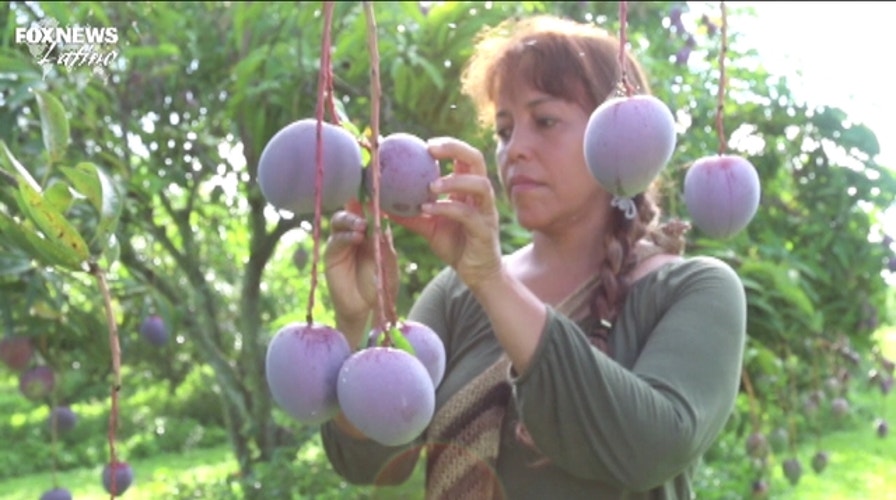Are bees the future of mango cultivation?
Noris Ledesma is using bees to cross-pollinate wild mangoes from Borneo with mangoes from South Florida.
Noris Ledesma, a Colombian fruit expert who works in Florida, says her first lesson as a horticulturist is that you cannot produce food without bees.
She’s been the Curator of Tropical Fruit at Homestead’s Fairchild Farm for 16 years now. When she first arrived she had a big problem: a 20 acre avocado grove that wasn’t producing fruit.
Local growers urged her to get bees, and so she did. Shortly thereafter she became an expert beekeeper and now owns 35 hives. She is also constantly doing research, which she funds with her avocado sales.
The Fairchild Farm is home to 650 different mango cultivars as well. Most mangoes are traditionally pollinated by flies, but in Borneo, all the way in Southeastern Asia, they use bees. In her research travels to the island, where she says mangoes originate, she connected with a group of beekeepers who encouraged her to start using bees for mango pollination.
One of the key advantages, she explains, is that bees are incredibly efficient and they are easy to control: they come back to the same hive every night.
- Fourth of July Recipe: Mango Salsa Shrimp
- Gluten-Free Mango Muffins with Passion Fruit Glaze
- Long a GOP lock, Georgia and Arizona are suddenly possible wins for Clinton
- Spicy Mango Salad with Passion Fruit Mousse
- Grilled Shrimp with Curried Coconut Mango Sauce
- Recipe: Strawberry Mango Triflelicioso
- Pumpkin Mango Mousse Trifle
Mangoes have long been considered a difficult species to breed due to biology, low fertilization rates and a prolonged juvenile period. But Ledesma is now looking to cultivate a hybrid, super-mango that doesn’t need to be sprayed and is resistant to diseases.
She is using bees to cross-pollinate wild mangoes from Borneo with cultivated mangoes from South Florida. Her plan is to grow the sweet fruit in the Florida Keys, Tallahassee, and swamplands of South Florida.
Ledesma says that a decade and a half ago she would have never imagined that bees would help her change the way we think about growing mangoes in the U.S. Are bees the future of mango cultivation?

